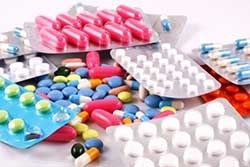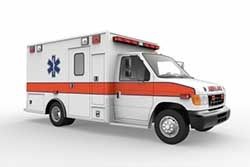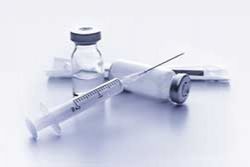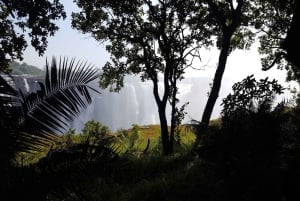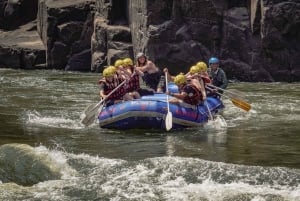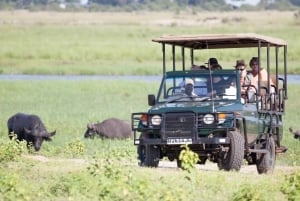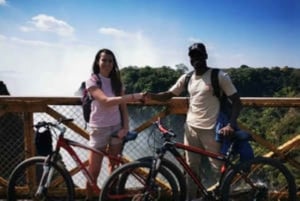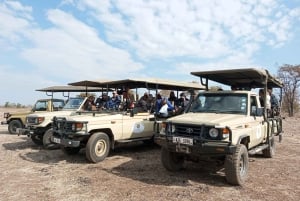Health
Medical services
Medical services in the rural areas are somewhat under-developed and clinics and hospitals may be few and far between. The main cities and towns have a varied selection of good private clinics and hospitals.
Chemists / Pharmacies
Travellers should carry an adequate supply of their prescribed medicines with them although chemists in the major centres now carry a wide range of medicines and first aid accessories. There are some emergency chemists open after hours or on Sundays in Lusaka.
Health Requirements
Visitors from, or passing through, a yellow fever and cholera zone (most of tropical Africa and South America) must be able to produce a valid International Certificate of Vaccination.
Passengers travelling between Europe and Zambia do not need a Yellow Fever certificate.
Vaccinations
No immunisations are required by law for entry into Zambia, unless you are coming from an area where yellow fever is endemic. However, the Centres for Disease Control and Prevention (CDC) recommends the following:
Make sure you are up-to-date on routine vaccines, these include:
measles-mumps-rubella (MMR) vaccine, diphtheria-tetanus-pertussis vaccine, varicella (chickenpox) vaccine, polio vaccine, and your yearly flu shot.
Travel vaccines include Hepatitis A, Hepatitis B, Typhoid. and malaria medication
Malaria
Zambia is a malarial area. Speak to your health professional about prophylaxis and use insect bite prevention measures. Symptoms usually appear within in 7-30 days but can take longer to develop.
Symptoms include high fevers, shaking chills, and flu-like illness. Without treatment, malaria can cause severe illness and even death. You should see a doctor immediately and stress that you have been in a malarial area. Some medical practitioners in non-malarial areas are not aware of the urgent necessity for immediate treatment, if you have been in a malarial area insist on immediate treatment whilst waiting for test results to come through.
Trypanosomiasis (Sleeping sickness)
There have recently been a few cases reported in Zambia. There is no vaccine to prevent trypanosomiasis but the use of insect bite prevention measures can help.
Symptoms include fever, headache, lethargy, confusion, sleep disturbances, tremors, and loss of weight. It is important to begin treatment as soon as possible.
Bilharzia
Bilharzia is contracted through exposure to contaminated water, therefore it is advisable to avoid wading in still water.
Intestinal symptoms include abdominal pain and diarrhoea (which may be bloody). Urinary symptoms may include frequent urination, painful urination, and blood in the urine. Some people do not show any symptoms at all. The disease is easily curable. It is probably a good idea to have a test a few months after returning home as this is a very easy disease to contract.
Emergency medical evacuation.
This should be covered by good travel insurances.
Health International/Medical Air Rescue Service (MARS)
Cairo Rd North End (next to Barclays Bank), PO Box 35999, Lusaka
Tel: 0211 236644 or 702664 for emergencies, or 231175/6 for general enquiries
email: marsintl@zamnet.zm
Specialty Emergency Services MedRescue
Sandy's Creations, PO Box 31500, Kafue Rd, Lusaka;
Tel: +260 211 273302-7
Cell: 097 777 0305/ 097 777 0302
Radio Phone: +260 211 212663/4
Emergency Control Centre:(01) 273302-7
E-mail : med@zamnet.zm
For less life-threatening conditions, your embassy, hotel or lodge can recommend a doctor. A sick foreign traveller will usually be accepted by one of the private clinics. Proof of comprehensive medical insurance will help.
HIV/AIDS
In the 2013 Report on the Global AIDS Epidemic the UNAIDS/WHO Working Group estimated that around 950,000 adults aged 15 or over in Zambia were living with HIV; the prevalence percentage was estimated at around 12.7% of the adult population. Exercise normal precautions to avoid exposure to HIV/AIDS.
First Aid Kit
Prescription medication
Sunscreen
Anti-histamine (tablets and lotion)
Insect repellent – some work, some don’t. Honestly, some people will be bitten wearing anything except possibly 100% Deet. For the lucky ones, a quick slather of chamomile will keep everything at bay, especially if their unlucky friend has neglected to apply their weapons grade chemicals.
Anti-bacterial lotion or wipes
Plasters
Painkillers


